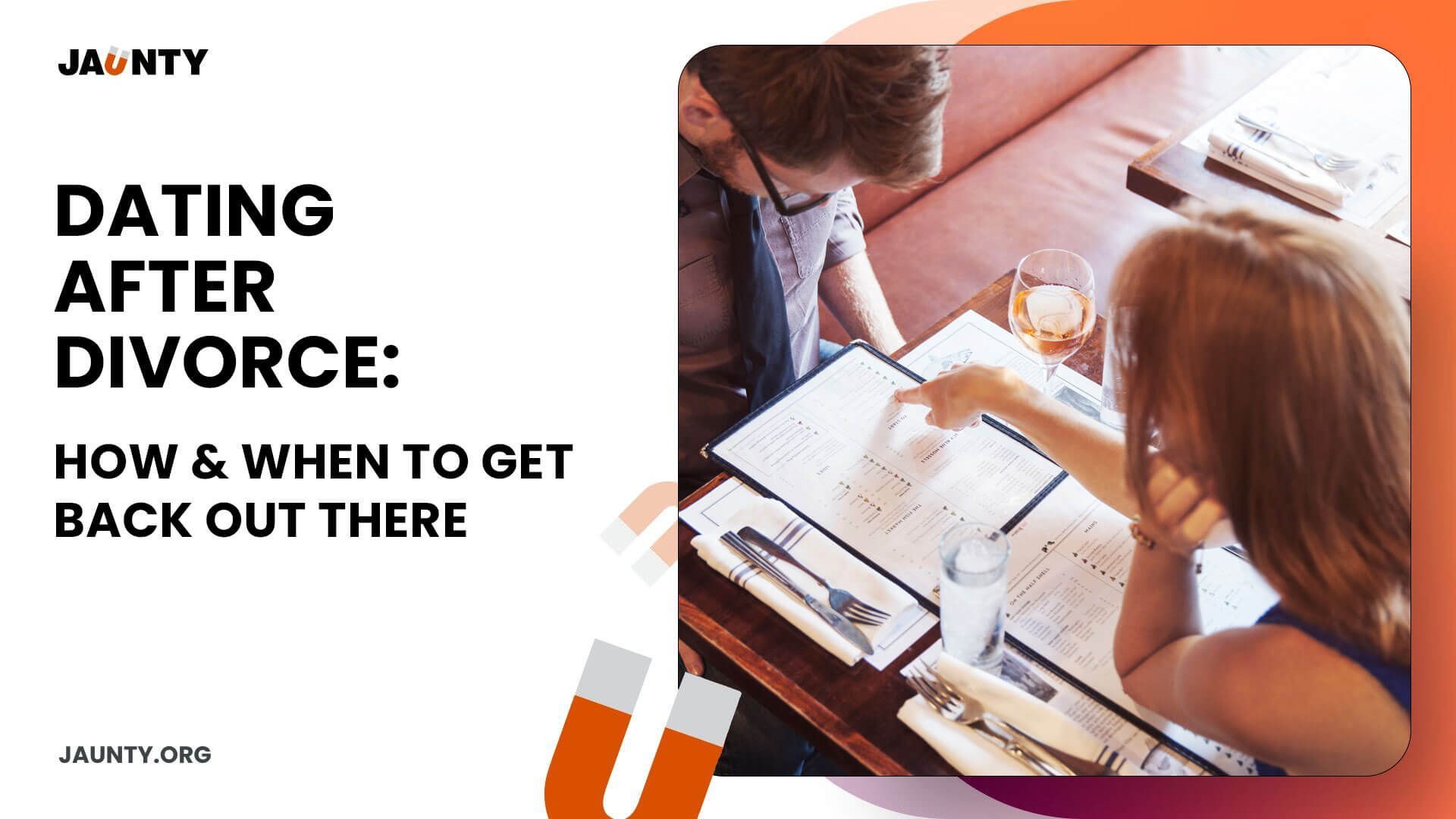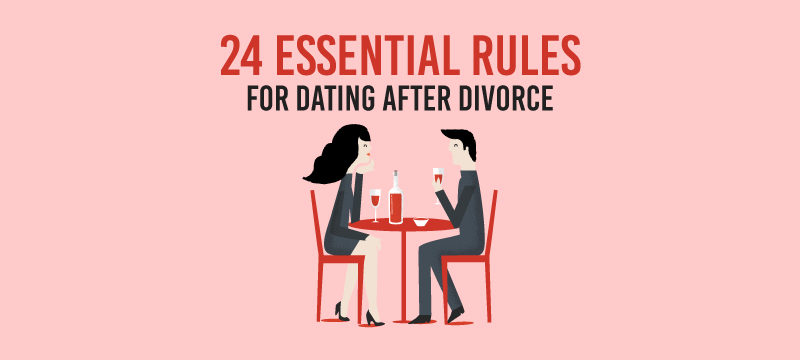
Understanding Dating After Divorce
Definition of Dating After Divorce
Dating after divorce involves re-entering the dating scene with the experiences and lessons learned from a previous relationship. It’s not just about finding companionship; it’s about rediscovering oneself and learning to connect with others in a meaningful way. Many individuals may find themselves navigating unfamiliar waters, as they seek to rebuild their lives and explore new romantic possibilities.
Emotional Challenges Faced
Jumping back into dating can bring a mix of excitement and apprehension. Common emotional challenges include:
- Fear of Repetition: Concerns about repeating past mistakes can hinder one’s willingness to fully engage in new relationships.
- Trust Issues: After experiencing betrayal or heartbreak, trusting a new partner can be daunting.
- Identity Crisis: Many people struggle with their sense of self after a divorce, leading to uncertainty in dating.
For example, a person might feel the urge to date but also grapple with worries that they might lose themselves again. Acknowledging these emotional hurdles is the first step toward a more fulfilling dating experience post-divorce.

Getting Ready to Date Again
Self-Reflection and Healing
Before diving into the dating world, self-reflection is crucial. Taking time to heal allows individuals to address any lingering emotional wounds from their previous marriage. Engaging in practices such as journaling or meditation can provide clarity on personal desires and boundaries.
- Acknowledge Past Feelings: Understand what emotions arise when thinking about past relationships.
- Identify Lessons Learned: Reflect on both positive and negative experiences to guide future choices.
Setting Realistic Expectations
Entering the dating scene with realistic expectations can prevent disappointment. It’s essential to recognize that every relationship has its unique pace and challenges.
Consider these points:
- Take it Slow: Rushing into a new relationship can lead to misunderstandings.
- Be Open-Minded: Each date is an opportunity to learn, not just to find “the one.”
By focusing on personal growth and setting achievable goals, individuals will feel more prepared to embrace the adventures ahead in dating.

Navigating the Dating Scene
Online Dating Tips
Once you’re ready to explore dating, online platforms can be an excellent way to meet potential partners. To make the most of your online dating experience:
- Create an Authentic Profile: Be truthful about your interests and intentions. This honesty attracts like-minded individuals.
- Choose the Right Platform: Different sites cater to different audiences. Pick one that aligns with your goals—whether casual dating or serious relationships.
- Engage Thoughtfully: Don’t shy away from initiating conversations! A thoughtful message can spark interest and connection.
Meeting New People Offline
While online dating is popular, meeting people in person can also be fulfilling. Here are some tips:
- Join Local Clubs or Classes: Engaging in activities you love can naturally introduce you to others who share your interests.
- Attend Social Events: From community gatherings to friend meet-ups, stepping out can widen your social circle.
For instance, attending a cooking class not only hones your culinary skills but also allows you to connect with potential partners in a relaxed environment. Balancing both online and offline efforts can enhance your dating experience significantly.

Building Healthy Relationships
Communication Skills and Boundaries
Once you’ve established connections, effective communication is vital for fostering healthy relationships. Being clear about your needs and listening actively creates a strong foundation.
Here are some practical tips:
- Use “I” Statements: Express feelings without blaming, such as “I feel overwhelmed when plans change last minute.”
- Set Clear Boundaries: Don’t hesitate to communicate what you’re comfortable with. This can protect your emotional well-being.
For example, discussing how much time you need for yourself can help prevent misunderstandings in a new relationship.
Red Flags to Watch Out For
While building connections, it’s essential to be aware of potential red flags that may indicate unhealthy dynamics:
- Lack of Respect: Dismissiveness or belittling comments can signal deeper issues.
- Controlling Behavior: Any attempts to dictate your choices or isolate you from loved ones are warning signs.
Recognizing these red flags early on allows individuals to make informed decisions about their relationships, ensuring that they remain healthy and supportive.

Coping with Rejections and Setbacks
Dealing with Rejection
Rejection is an inevitable part of dating, and handling it gracefully can be challenging. The emotional sting can linger, but it’s crucial to remember that rejection often reflects the other person’s preferences rather than your worth.
Here are some tips to cope:
- Acknowledge Your Feelings: It’s okay to feel hurt. Allow yourself to process these emotions rather than suppress them.
- Gain Perspective: Remind yourself of past successes and that not every match is destined to work out.
Sharing a personal story, one might recall a time when a promising connection fizzled out, leading them to discover a more fulfilling partnership later.
Overcoming Fear of Vulnerability
Vulnerability can be daunting but is essential for deep connections. Learning to embrace it involves:
- Taking Small Risks: Start by sharing light personal details, gradually moving to deeper topics as trust builds.
- Practice Self-Compassion: Learning to treat yourself gently during tough moments creates a safe internal space for vulnerability.
By reframing rejection and fostering openness, individuals can enhance their dating journey and build meaningful relationships without the fear of hurt holding them back.

Introducing Your Children to a New Partner
Timing and Approach
Introducing children to a new partner is a significant step that requires careful timing and consideration. It’s important to evaluate the stability of both your relationship and their emotional readiness.
- Wait for Solid Ground: Ensure your relationship has developed enough to withstand the complexities of family dynamics.
- Casual Introductions First: Start with low-stakes encounters, like casual outings or group gatherings, to ease everyone into the new relationship.
One parent might recall introducing their partner during a family picnic, allowing for a more relaxed and fun atmosphere.
Balancing Priorities
Balancing the needs of your children with your desire for companionship can be challenging:
- Make Time for Your Kids: Prioritize family time and ensure your children feel secure in your love and attention.
- Communicate Openly: Encourage them to express their thoughts or concerns about the new relationship.
For instance, taking the time to listen to your child’s feelings about the new partner fosters trust and builds a foundation for blended family acceptance. By thoughtfully navigating these introductions, families can create a harmonious environment that nurtures existing bonds while welcoming new ones.

Seeking Professional Help and Support
Therapy and Counseling Options
As navigating dating post-divorce can be emotionally taxing, seeking professional help can provide valuable insights and coping strategies. Therapy and counseling offer a safe space for individuals to explore their feelings, process past trauma, and develop healthier relationship patterns.
- Individual Therapy: A focused approach for personal growth can help address self-esteem issues or anxiety about dating.
- Couples Counseling: If you’re in a new relationship, counseling can enhance communication and strengthen your bond.
One person might share how working with a therapist helped them release past resentments and embrace dating again with a fresh perspective.
Joining Support Groups
Support groups provide an opportunity to share experiences with others facing similar challenges.
- Peer Interaction: Engaging with people who understand the ups and downs of dating after divorce can be incredibly validating.
- Learning from Others: Sharing strategies and insights can offer new perspectives on managing relationships.
Joining a local or online support group can foster a sense of community and resilience, empowering individuals to move forward in their dating journeys with confidence and support.

Embracing Your New Relationship Status
Celebrating Personal Growth
As individuals venture into dating after divorce, it’s essential to acknowledge and celebrate personal growth achieved throughout the journey. Reflecting on the lessons learned can be empowering and uplifting.
- Recognize Change: Take time to appreciate how far you’ve come, from understanding your desires in relationships to becoming more resilient.
- Set New Goals: Use this growth as a foundation for establishing future relationship aspirations.
For instance, someone might celebrate their increased self-confidence by planning a solo trip or pursuing a new hobby they’ve always wanted to try.
Looking Forward to the Future
With personal growth comes the exciting prospect of a new future. Embracing this new relationship status opens doors to fresh experiences.
- Stay Optimistic: Keep a positive outlook on potential connections and the opportunities they bring.
- Maintain an Open Mind: Each relationship is unique, and approaching them with curiosity allows for deeper connections.
One might reflect on how each date can lead to new adventures, paving the way for fulfilling relationships. By celebrating personal growth and looking forward to the future, individuals can confidently navigate the dating landscape while cultivating hope and excitement.
